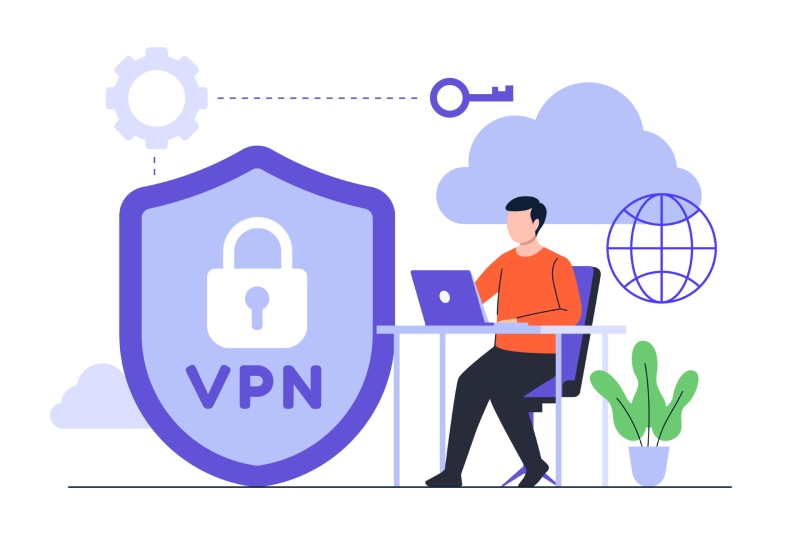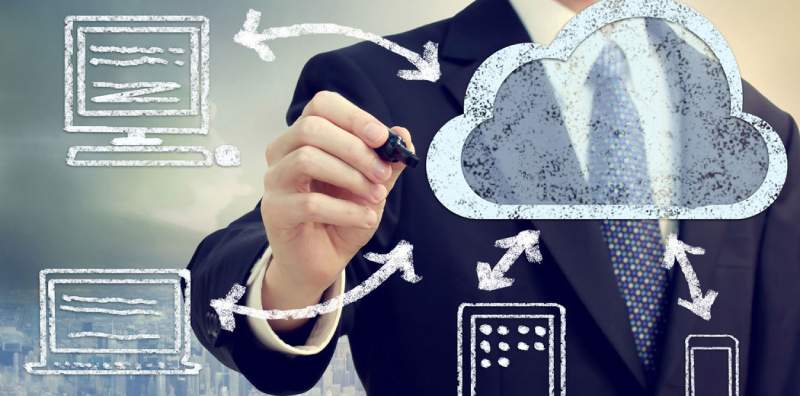In our new Getting It series, we’ll teach you everything you need to know to get started and excel at various online and offline technology. Here, we’ll teach you everything you need to know about virtual private networks and how to use them.
Remove the first word to understand better what a virtual private network (VPN) is. That leaves a “private network,” which appears to be the most straightforward option. A private network is effectively closed off to anyone who does not have access to it. Consider your school’s intranet. Or perhaps the CIA’s servers.
Related Information
Adding the “virtual” part back in basically means that you access this private network virtually from your home computer (as having university or spy agency-sized servers running in your house would be inappropriate).
But what exactly is a VPN?
VPNs are essentially a collection of servers that you connect to via your internet service provider (ISP). The servers serve as your virtual home on the internet once you’ve established a connection with your VPN, a process known as tunnelling. It’s as if you relocated to a secure office space without moving.
All data sent and received while browsing the web from this secure space is encrypted, providing you with a high level of privacy. Your ISP, or even certain spy agencies, won’t be able to tell what information you’re browsing or downloading once you’ve tunnelled in.
Why would you use a VPN?
One of the primary reasons to always use a VPN to access the internet is secure. Because all your data is encrypted once tunnelled, the encryption will thwart their efforts if a hacker tries to intercept your browsing activity while entering your credit card number for online pickup. That is why using VPNs in public places like coffee shops and airports is an excellent idea.
The second primary reason to use a VPN is the closely related issue of privacy. It’s none of your business if you like to look for garden gnomes made in the late 1800s in Gräfenroda, Germany. By encrypting your data, what you search for, say in forums, and watch via streaming is your business.
It’s important to remember that while a VPN will protect the data you send from your computer to the VPN hub, it won’t necessarily keep you from being tracked by cookies and other web trackers.
“A VPN encrypts network traffic,” Ximning Ou of the University of Southern Florida explained. “It ensures that adversaries cannot easily eavesdrop/tamper with the communication. It does not affect application features. So, cookies are set on your browser while connected to a VPN.”
Tracking
To avoid such tracking attempts, it is best to conduct your browsing in incognito or private mode. It would help if you also thought about installing tracking-blocking software like ghostery.
A third important reason to use a VPN is that it can provide you with a virtual location. Are you worried about the feds appearing at your door because of your strange obsession with garden gnomes? They won’t be able to connect your IP address to your physical address. Want to play in an online bridge room, but your country does not allow it? Then tunnel into a country where such activity is legal, and you’ll be fine (all in)—looking to watch a movie that your government has banned? It’s probably not illegal everywhere, so find a country where you can watch it, tunnel in, and pop some popcorn.
This can also work in the opposite direction. You can tunnel there if you’re travelling far from home and want to watch a show that’s only available on a provider like Netflix back home. The same could be said for banking and websites only open in the motherland.
Of course, while using a VPN allows you to avoid your country’s laws and restrictions, keep in mind that you are still subject to them. VPN use does not render you invisible, only anonymous. So, if you’re doing a lot of suspicious browsing and a government agency notices you, they’ll probably be able to find you with enough resources and time.
How to Select a VPN Service Provider.
There are now literally hundreds of VPN providers to choose from. Finding the right one for you boils down to a few primary considerations:
Security versus cost.
Generally, the higher the cost of a VPN service, the more secure it is. Most users will be OK with a low-cost mainstream VPN provider that offers reliable service for $4.99 to $12.99 per month. While evaluating different VPN providers is beyond this article’s scope, examining various providers’ reviews and choosing one with a long history of protecting its users is always a fine place to start. One Reddit user even compiled a lengthy list comparing various VPN providers.
Logging vs no logging.
In terms of security, whether or not providers keep logs of user data and browsing activity distinguishes them. If they don’t, you gain an extra layer of anonymity. If they do, those records could be used to track you down if someone was willing to put in the effort.
Sharing an IP address.
Another quick way to assess a potential VPN service provider is to see if it assigns the same IP address to multiple users. Because it is more difficult to identify a single user when many are surfing from the same IP address, IP sharing provides an additional layer of security.
The location of the servers.
With the widespread availability of WiFi, it’s easy to forget that the internet is still a thing connected by cables and wires. As a result, a service that provides a diverse range of VPN sites can be beneficial. If you frequently want to stream content from the United Kingdom and live in Kansas, check to see if your mainstay has a hub on the east coast of the States and a London server. Depending on your requirements, the server’s location may also be necessary. If having an IP address in Japan is advantageous, ensure your provider will allow you to tunnel there.
The number of servers.
A VPN provider with more servers means you won’t be crammed onto an overcrowded server, slowing down your connection times.
Support for multiple devices.
When you sign up a VPN assistance, you will not only want to connect your computer, but you may also want to install the software on other computers, tablets, and phones. Most providers allow you to connect up to five devices but double-check before you sign up.
IP leakage
Check to see if a VPN provider offers a free trial. Sign up, tunnel in, and then look at this site if they do. It will assist you in determining if you have an IP leak. Which means that your proper location is being leaked somehow. If your ISP or suitable physical location appears on this page, you should proceed to a more secure VPN provider.
The user interface.
Finally, examine how a VPN provider’s software appears and functions. Does it appear to be relatively simple to use? Is it simple to switch on and off? Is it simple to change the location in which you’ve tunnelled? While you are unlikely to use your VPN software frequently. It is comforting to know that when you do. You will not be inconvenienced and will have the control you require.
Also read: What are the ways to stream shows with VPN?


